Stand and deliver: in praise of the news kiosk
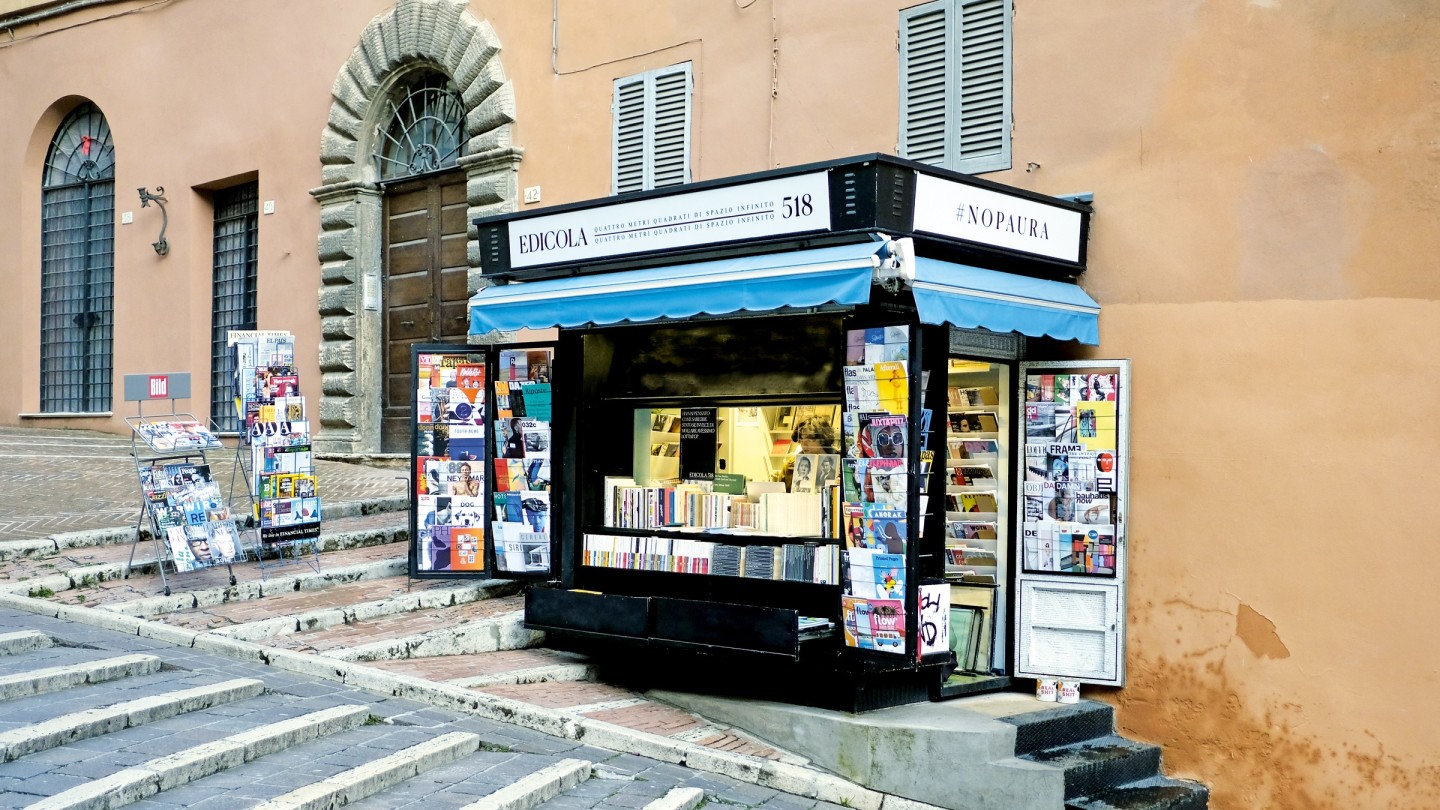
Simply sign up to the Media myFT Digest -- delivered directly to your inbox.
We republish this article to mark the retirement of Mohammed Ahmed, who ran the cult independent store Casa Magazines in New York since since it first opened in 1994. He has sold the shop to Iconic Magazines, a small chain of lower Manhattan magazine shops.
Print is dead. Long live print. Despite the obstacles currently facing the publishing industry – plummeting advertising revenue being just the tip of the iceberg – many readers have rediscovered the pleasure of paper. Print sales are growing and subscriptions have increased for some titles, including FT Weekend, Monocle and The Spectator. With renewed interest has followed an appreciation of the newsagent. From the traditional kiosk to the boutique ’zine store, the newsagent has been identified as an unofficial emergency service, with a unique power to charm.
“People want more than their phones and cable news can provide – more investigation, more analysis, different visuals,” says Ayana Byrd, a Brooklyn-based freelance journalist for The New York Times, Rolling Stone and Elle. Byrd has always had a fondness for newsagents. As a journalism student at Columbia, New York, she would browse the bustling newsagents of 2nd Avenue, Iconic Magazines on Bowery and the Soho News International convenience store. A self-confessed “magazine nerd”, she’s optimistic that the pandemic will see a new future for print.
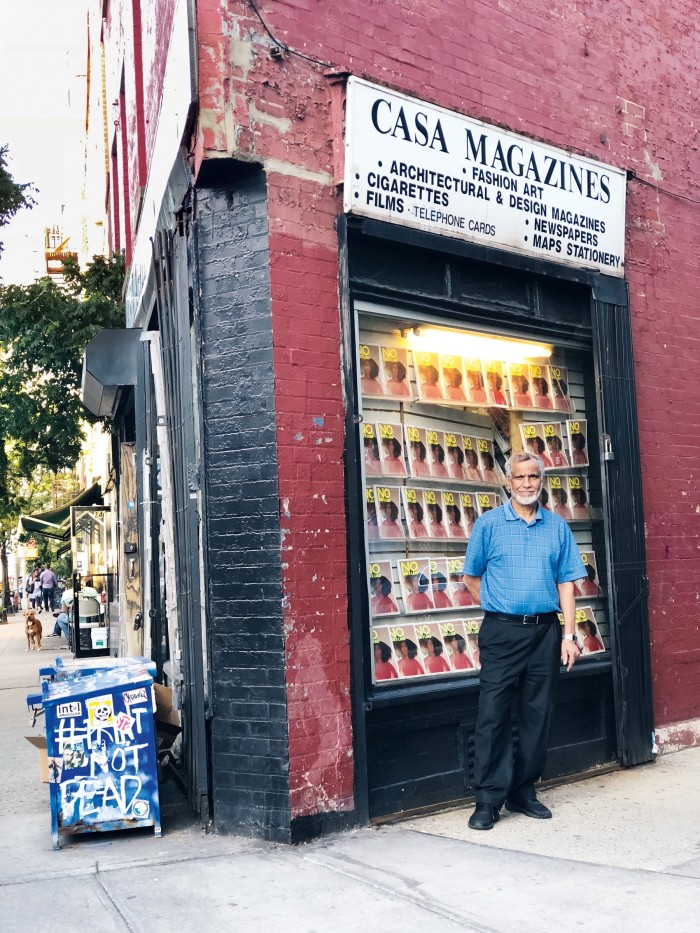
“There has been a shift during lockdown to people really wanting to read,” agrees Jeremy Leslie, an award-winning creative director who opened his shop MagCulture five years ago in Clerkenwell, London. It began as a design studio, but he decided to open the shop to meet rising demand.
“There are so many small, beautiful magazines on the market, all done by a younger generation of magazine makers. More than ever before!” says Mirko Borsche, the creative director behind Germany’s cult ZeitMagazin. For his personal print supply he favours Soda Books, a minimal all-white store with branches in Düsseldorf and Munich. He also recommends Do You Read Me?! in Berlin, an all-black industrial shop that stocks over 500 titles alongside architecture and design books.
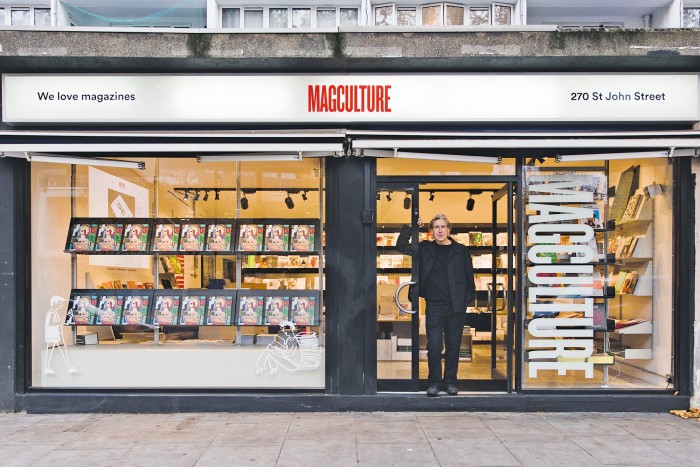
Small independent magazine outlets have found favour everywhere, from Stockholm’s Papercut – a Scandi space in the Södermalm district – to Tokyo, where Mount Zine, housed in a traditional wooden store, is a mecca for magazine enthusiasts. In Seoul, fans of large-format fashion titles are best served at Paper Muse, tucked away in one of Itaewon’s busy side streets, where magazines are exhibited like designer shoes. Beirut had a gem in Papercup, which was badly damaged in the 4 August explosion – there is a GoFundMe appeal and an “In Solidarity with Beirut” T-shirt being sold by Pressure Clothes to raise money to rebuild it.
In London, the much-loved Shreeji Newsagents, naming itself “London’s first culture concept store”, has recently reopened in Marylebone. Following a revamp by Gabriel Chipperfield and Laura de Gunzburg, the store now offers coffee, a reading room and an event space. Fernando Pacheco, who hosts the print-focused weekly podcast The Stack on Monocle 24 (an adjunct of Tyler Brûlé’s metropolitan magazine), is a Shreeji regular – the shop is just around the corner from the Monocle headquarters. “I like to explore and be struck by new covers,” says Pacheco, “I discover many editors to invite on my show by browsing through new titles.”
Pacheco was raised in São Paulo, a city in which newsstand culture is still strong. If you’re in the city, be sure to visit Banca do Kiro in the lush Pinheiros neighbourhood, selling magazines, drinks and books. Pacheco also shops at the traditional bancas de jornal on Avenida Paulista. At Monocle’s own Kioskafé, established in Paddington in 2015, the minimal space lures readers in with its signature matcha lattes and cinnamon buns – but its USP is a catalogue of on-demand titles in more than 60 languages, from Jornal de Angola and L’Espresso to Der Spiegel and The Zimbabwe Independent, that can be printed there and then in store.
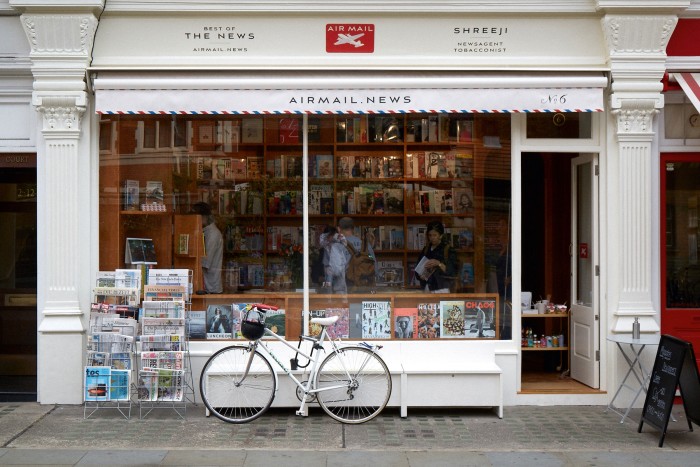
And what of the iconic Paris kiosk? “The forest-green domed newspaper kiosks were once as much a part of the landscape as the Tour Eiffel,” says FT Paris correspondent Leila Abboud of the 19th-century kiosques à journaux that, until 2018, graced almost every corner of the capital. They were revamped by the industrial designer Matali Crasset as part of a renovation project that earned them the nickname “sardine cans”. Nevertheless, buying papers at newsagents is so ingrained in the vie Parisienne that during lockdown “many stayed open to serve Parisiens shut up in their small flats,” says Abboud. Her own local paper vendor in the 18th arrondissement “felt he was providing a sense of normalcy to a population deprived of it”.
Italy has an embarrassment of riches too. Francesco Franchi, deputy creative director of La Repubblica, describes Edicola 518, in Perugia’s historical centre, as “a temple for beautiful paper”. Open since the 1900s, the space was renovated in 2016 and now stocks around 100 titles per square metre, as well as hosting readings and talks. Likewise Reading Room, in Milan, was founded in 2018 for “the dissemination, understanding and appreciation of magazines”. And in Rome, Edicola Erno, near the Vatican, offers an exquisite selection of international papers and magazines – alongside aperitivos.
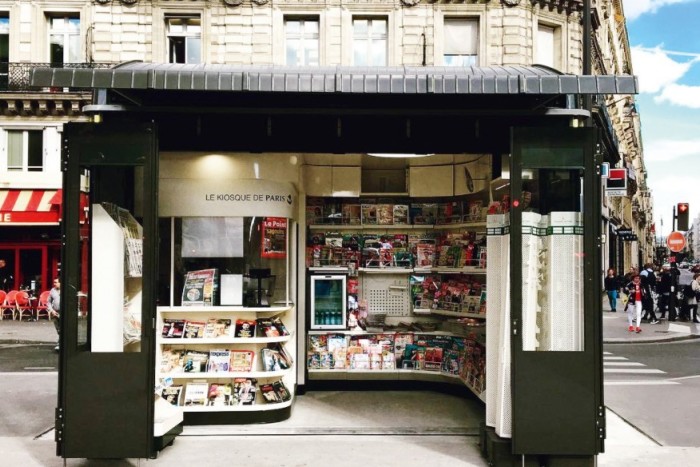
But the joy of the newsstand is perhaps best exhibited by New York’s Casa Magazines, a matchbox-sized West Village spot active since the 1960s and so popular on Instagram (@casamagazinesnyc) that co-owner Mohammed Ahmed has a sign to prompt posers to buy a magazine after snapping selfies in his store. The striking triangular space stocks more than 2,500 titles in its 400sq feet, thanks to “secret” acrylic shelving on the ceiling. And its popularity reaches way beyond social media. In May the newsagent was forced to close, despite being recognised as an essential business. The GoFundMe page set up to save it raised more than $25,000 among “Westies” that covered its rent and wages, and with the intercession of influential habitués – including a writer-at-large for Vanity Fair – the newsagent was allowed to reopen by the mayor’s office in July.
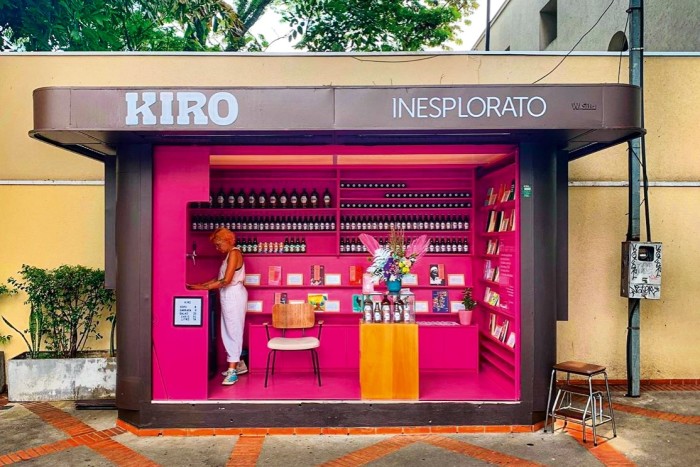
Ahmed, who has part-owned Casa Magazines since 1995, believes newsagents like his are embedded in their community. He recalls events such as the death of Diana, Princess of Wales, and the election of Barack Obama as days on which the street outside the shop was filled with New Yorkers fighting over covers. And even in the thick of the digital revolution, landmark covers are still a major event. When The New York Times ran its 100,000 Covid deaths cover, all copies were gone by 9am. “And then a guy came in and looked at me and said, ‘Actually [I want an edition] because my father’s name is in it.’ So I went to the counter and I gave him the copy I had set aside for myself. I’m glad I had it for him. It would have broken my heart to see him walk away without.”
Comments